Howard Staunton Quotes & Sayings
22 most famous Howard Staunton quotes and sayings (celebrity). These are the first 10 quotes we have.
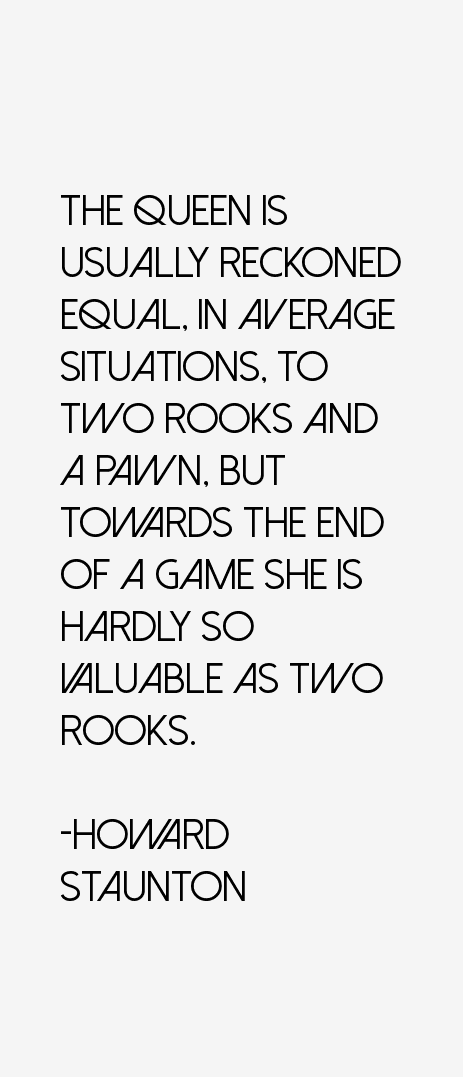
“The Queen is usually reckoned equal, in average situations, to two Rooks and a Pawn, but towards the end of a game she is hardly so valuable as two Rooks.”
“Be cautious of playing your Queen in front of your King and in subjecting yourself to a discovered check. It is better when check is given to your King to interpose a man that attacks the checking Piece than with one that does not.”
“The Pawn moves only one square at a time, and that straight forward, except in the act of capturing, when it takes one step diagonally to the right or left file on to the square occupied by the man taken, and continues on that file until it captures another man.”
“If either player abandon the game by quitting the table in anger, or in an otherwise offensive manner; or by momentarily resigning the game; or refuses to abide by the decision of the Umpire, the game must be scored against him.”
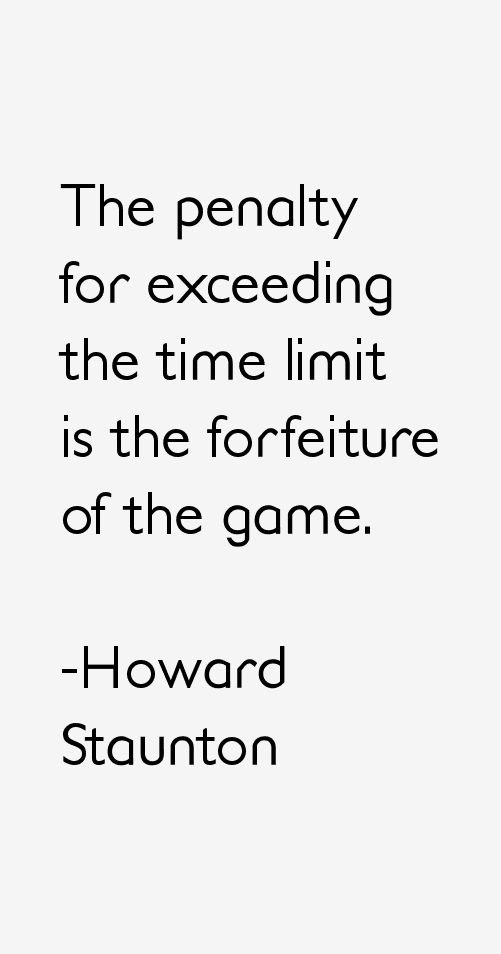
“The penalty for exceeding the time limit is the forfeiture of the game.”
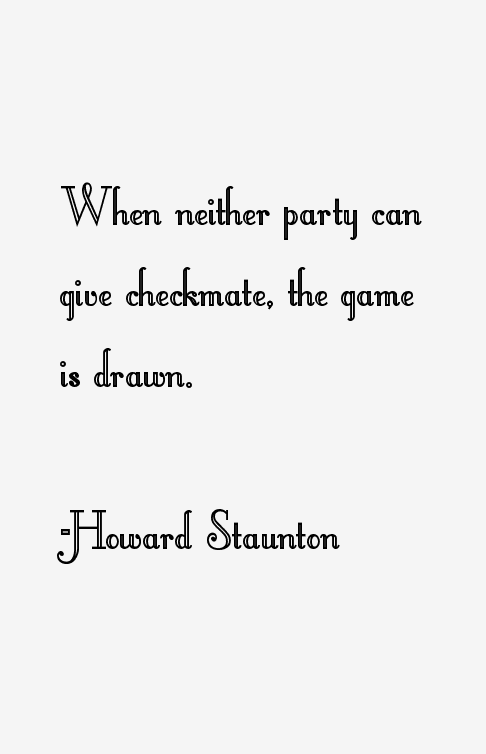
“When neither party can give checkmate, the game is drawn.”
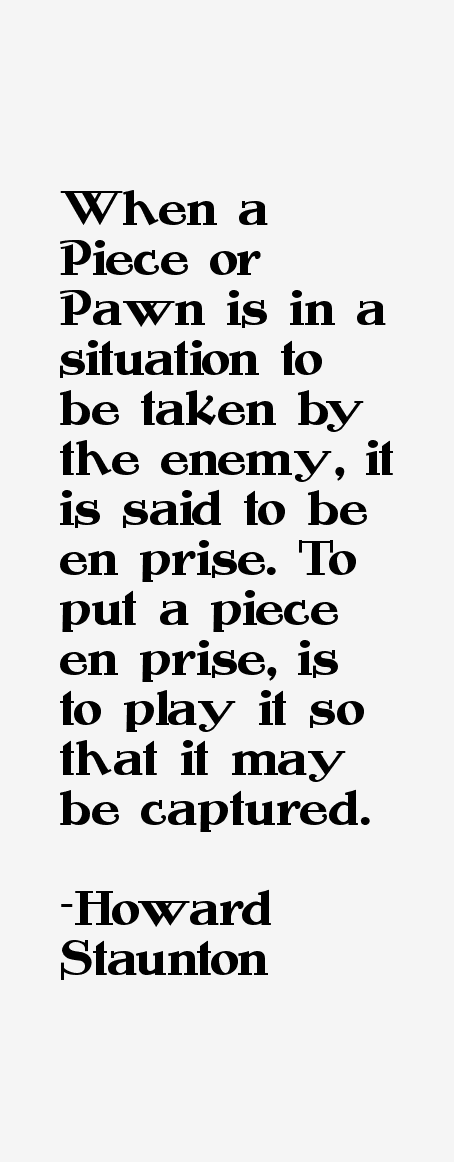
“When a Piece or Pawn is in a situation to be taken by the enemy, it is said to be en prise. To put a piece en prise, is to play it so that it may be captured.”
“Having marshalled the men in battle order, as shown in the first diagram, you will observe that each party has two ranks of men, on the first of which stand the superior Pieces, and on the next the eight Pawns.”
“Many persons have been confused and discouraged at the very outset of the study by the great variety and the delicate distinctions of the openings: and this has constituted a fault in many otherwise excellent manuals for the learner.”
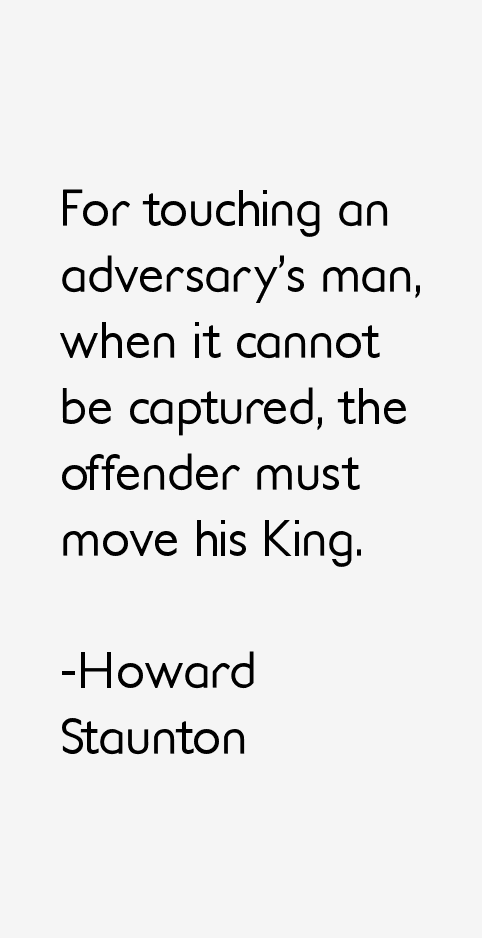
“For touching an adversary's man, when it cannot be captured, the offender must move his King.”
Howard Staunton Quotes Rating
No Ratings Yet
Leave A Comment
























